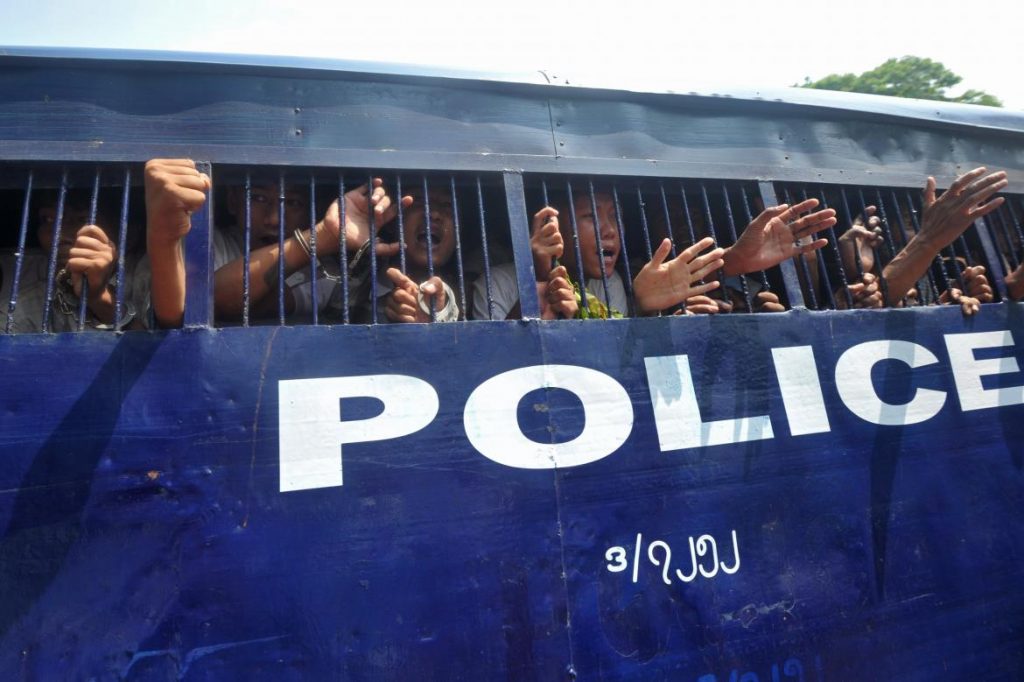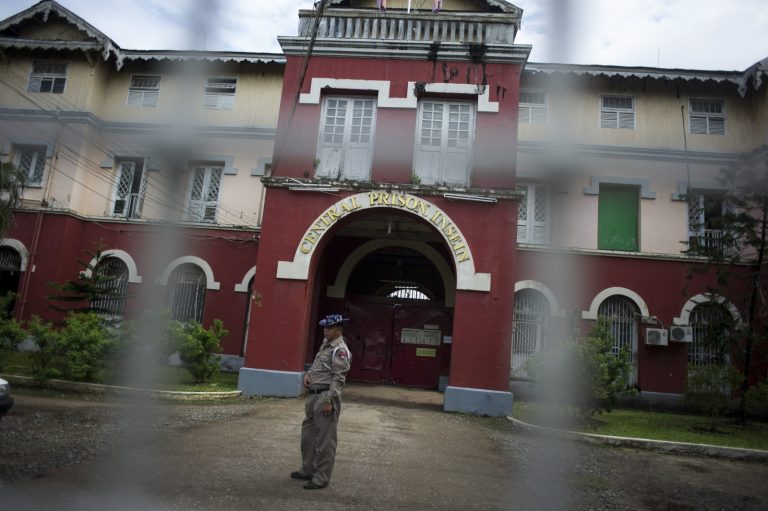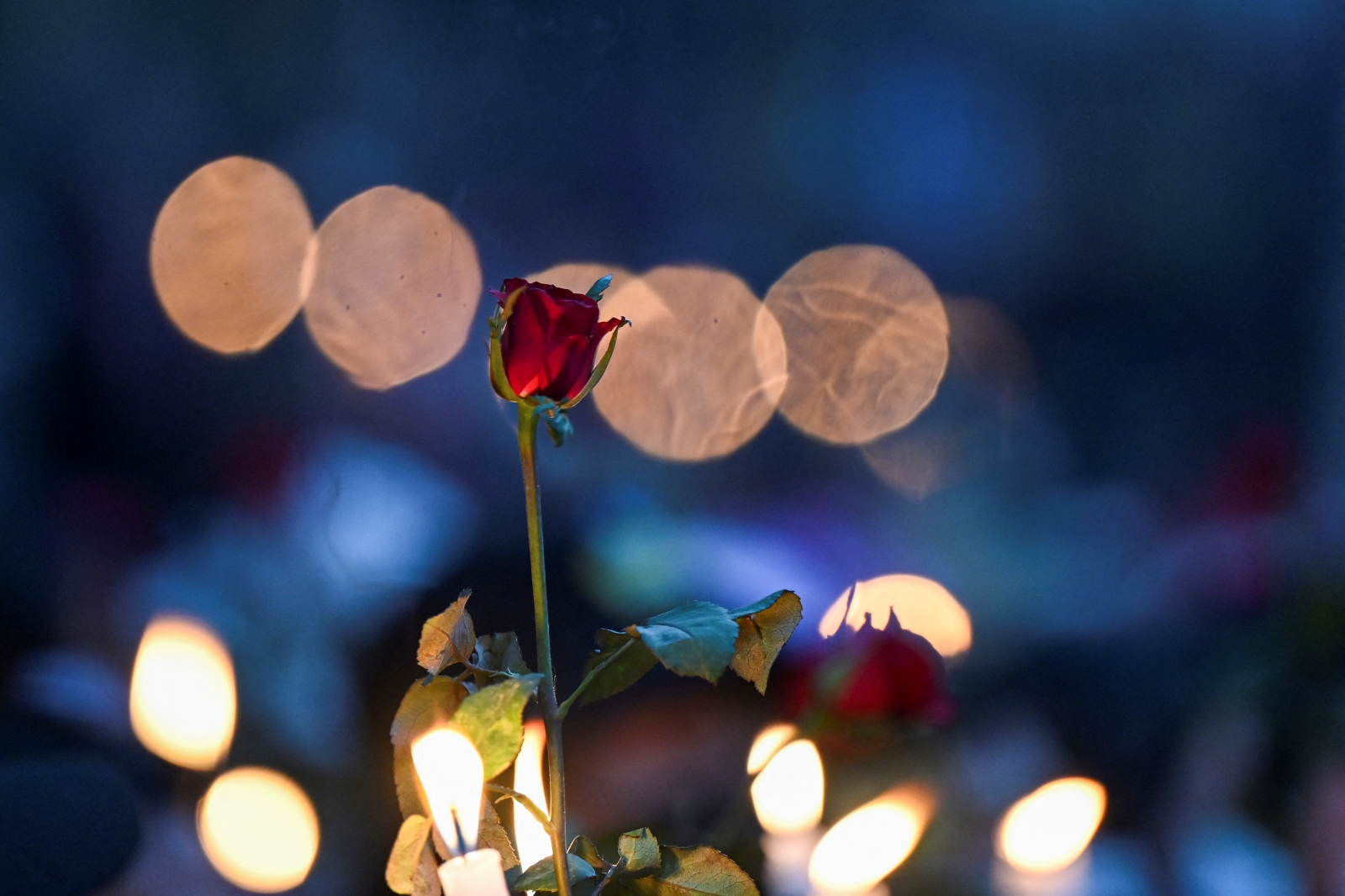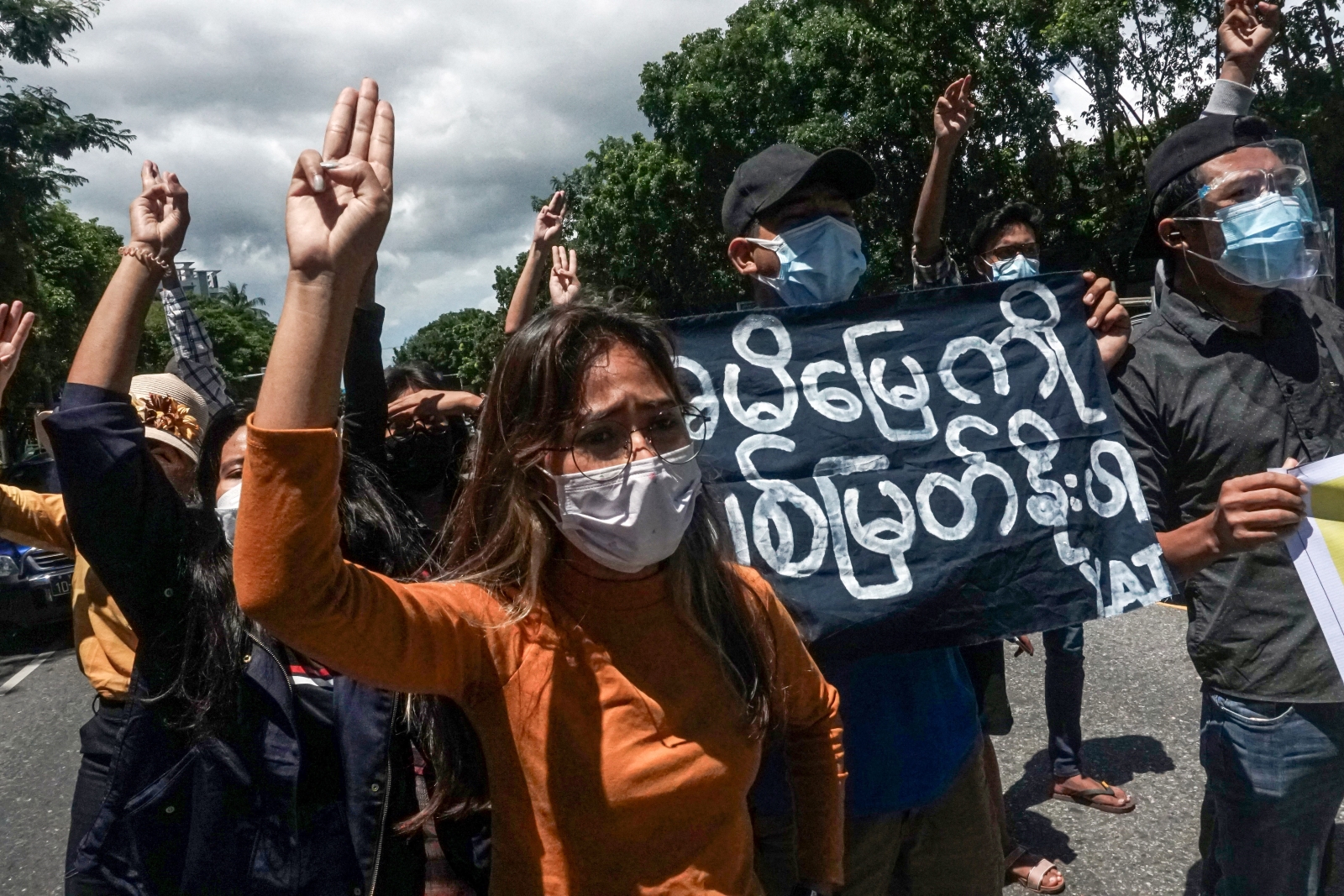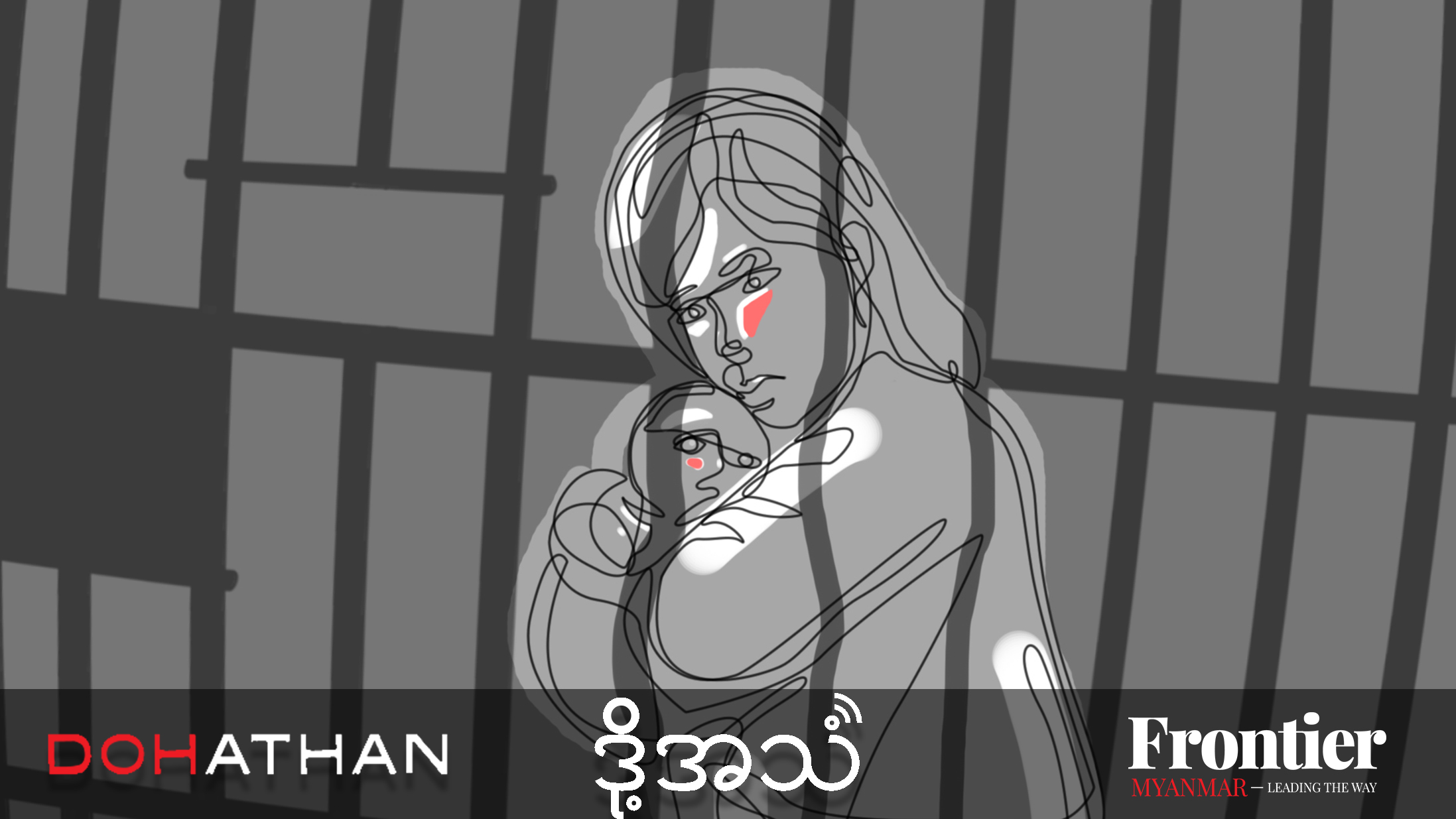The continuing presence of political prisoners in Myanmar’s jails strains believability in the government’s democratic credentials and its claims that next month’s election will be free and fair.
By ALEX BOOKBINDER | FRONTIER
On Friday, October 9, four students from Mandalay’s Yadanabon University learned their fate after more than four months in prison: a year’s imprisonment each, plus an extra three months for Ko Naing Ye Wai, the university’s erstwhile student union president.
Their crime? Drawing graffiti opposing a new National Education Law, passed last year amid a torrent of protests and criticism from student groups, who claimed it limited academic freedom and put undue political constraints on students and instructors.
Next month, Myanmar is set to hold what its government claims will be free, fair and democratic elections. Whatever the outcome, events leading up to the polls have already cast a long shadow on the proceedings, said Ko Aung Nay Paing, a spokesperson for the All Burma Federation of Student Unions, an umbrella organisation for student unions with a long history of political activism.
“The government has made claims that it will hold free and fair elections, however they do things that prevent us from making the election free and fair, like holding my colleagues – my brothers and sisters – in prison,” he said. “The international community needs to understand that this is a way of chilling activism in this country.”
Support more independent journalism like this. Sign up to be a Frontier member.
A report released last week by rights watchdog Amnesty International said Myanmar’s jails were holding 91 “prisoners of conscience” – people imprisoned solely for their beliefs, speech, and/or nonviolent dissent – although the report acknowledged that the true number is “likely to be higher.”
All but 19 of these political prisoners are students, said the Amnesty report. Most were detained in March at Letpadan during a brutal crackdown by police on students and their supporters who had been blocked in the town from continuing a protest march to Yangon. The students arrested at Letpadan are being held in nearby Thayawaddy Prison and undergoing a trial that has dragged on for months.
The conclusion of the ‘Mandalay Four’ trial marks the first time students have been prosecuted for their involvement in the protests. “It’s the first case in what will no doubt be a long series of cases,” said Ko Aung Nay Paing. “I think that the [Thayawaddy] students will [still] be imprisoned at one juncture or another, whether there’s a new government or the current government in place. They’ll probably sentence them first, and then, due to political pressure, have an amnesty. But I am certain they are going to prosecute them,” he said.
Since the rise of President U Thein Sein’s civilianised political order in 2011, the government has periodically amnestied prisoners en masse. Successive reprieves have seen the number of political prisoners in Myanmar’s jails dwindle from thousands to double-digits today.
But by any measure, the government should not be adding to their numbers at a time when it is seeking domestic and international legitimation for the reform process as the election approaches.
That the student movement accounts for most of those detained for political reasons is perhaps unsurprising, as successive military governments have long felt threatened by the spectre of student activism. Most of the key leaders in Myanmar’s independence movement were veterans of student politics at Rangoon University in the 1930s. Student influence in opposition politics reached a zenith in 1988, when a massive student-led uprising may have come close to removing the military from power.
“When all the dust settled, the police arrested and rounded up 127 individuals in Letpadan; 50 of those arrested on that day are still behind bars to this day,” said Amy Smith, executive director of Fortify Rights, a human rights organisation that focusses on Myanmar.
Fortify Rights launched a report in Yangon on September 10 detailing rights violations that took place during the crackdown and its aftermath. It calls for the release of the detained students and a thorough, independent investigation.
“We’re talking about the events that happened seven months ago, however the crackdown is continuing to this day,” she said. “It’s continuing in the form of prosecutions, it’s continuing in the form of the continued imprisonment of people who were affiliated with the protest, it’s continuing in the form of the harassment of student leaders and members of the legal community are finding it difficult to bring these cases forward.”
Human rights lawyer U Robert Sann Aung says a big challenge in such cases is the absence of an independent judiciary. “In our country, the judicial system is under the power of the government and has no independence. Those who are being accused of crimes do not have any protection,” he told Frontier earlier this year in an interview about the Letpadan case.
“When you have a political transition, the judiciary is the hardest to change,” said Roger Normand, the executive director of Justice Trust, a legal-focused group that works with activists to improve their odds in Myanmar’s courts. “Through voting, if it’s free and fair, you can change the executive and legislative branches of government, but you cannot change the judicial branch.”
Judicial oversight in Myanmar is, unsurprisingly, poor. Although the 2008 Constitution ostensibly bans discrimination on religious grounds, a package of four “race and religion protection” laws have been passed into law despite being roundly condemned as deeply discriminatory towards minorities, particularly Muslims.
The sway of religious interests – such as the monk-led ultranationalist group Ma Ba Tha that spearheaded the four laws – led to the prosecution for religious defamation of four people identified by Amnesty as prisoners of conscience. They include the “Buddha Bar” trio – Htut Ko Ko Lwin, Ko Tun Thurein, and British-New Zealand dual national Philip Blackwood, who were sentenced in March, despite their effusive apologies, for using a Buddha image to promote a bar event. The other person in this category is Htin Lin Oo, a well-known pundit and former communications officer for the opposition National League for Democracy, who was jailed for statements criticising the use of Buddhism as a tool for extreme nationalism.
A number of journalists, labour rights activists and community organisers have also been identified by Amnesty as prisoners of conscience, including five staff members of the defunct Unity Journal, who are serving seven-year sentences for betraying state secrets in a report on an alleged chemical weapons factory.
The conduct of the trial of the students held at Thayawaddy underscores how politicised and arbitrary the process of justice can be in Myanmar, said Mr Normand.
“The typical trial for a political activist, in general, lasts one day. They’re sham trials. The judge comes in, knows what the [outcome is going to be], and says jail, one year, two years,” he said. “This case is the exact opposite. There have been numerous delays. The proceedings are only held once a week, and the judge consistently walks out whenever he feels upset by anything, always coming from the students and their lawyers.”
Mr Normand expressed disbelief at the reason given for the most recent delay. A few weeks ago, the students, along with their parents and lawyers, were told the trial would be delayed for two or three months because police had damaged a vehicle during the crackdown, a premise that strains credulity. Pushing the sentencing back would put their sentencing date safely on the other side of the elections, which are scheduled for November 8.
“That makes no sense,” Mr Normand said. “What we can see consistently in the Myanmar judiciary, whether they are dealing with trials in one day or with this trial, which has already taken seven months, there are political concerns… I think we can see that very clearly.”


